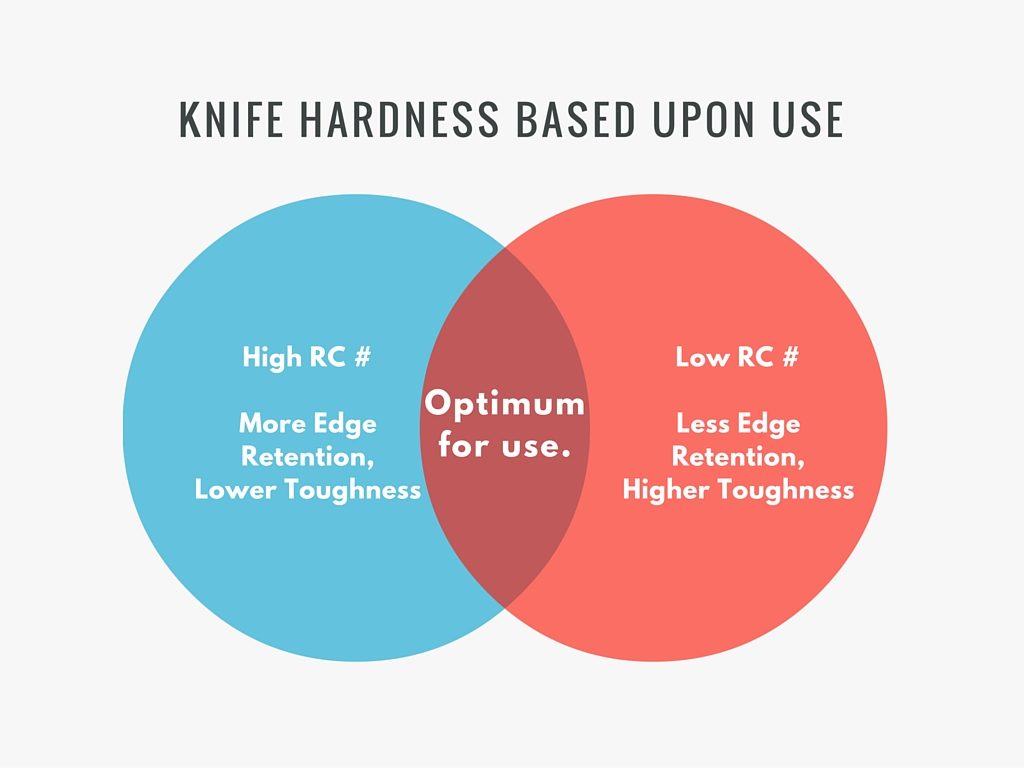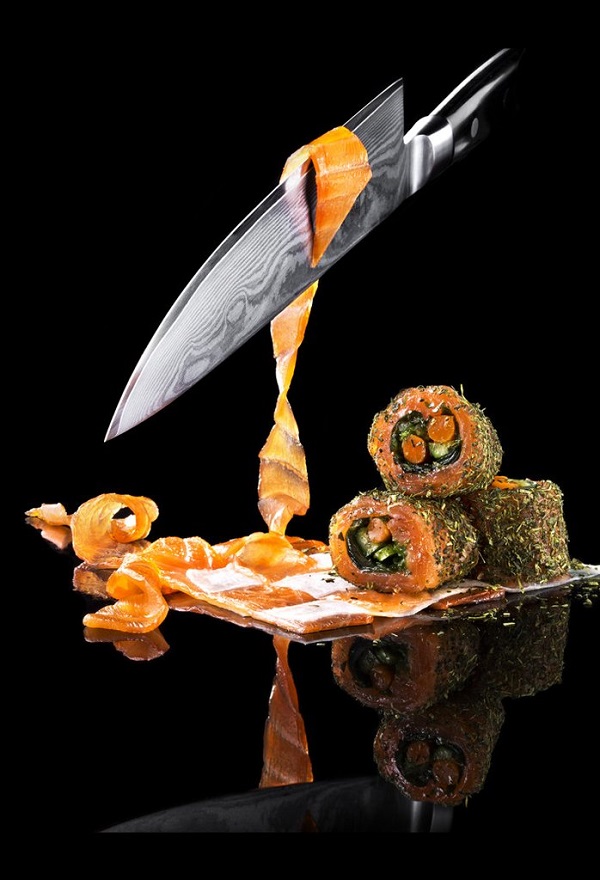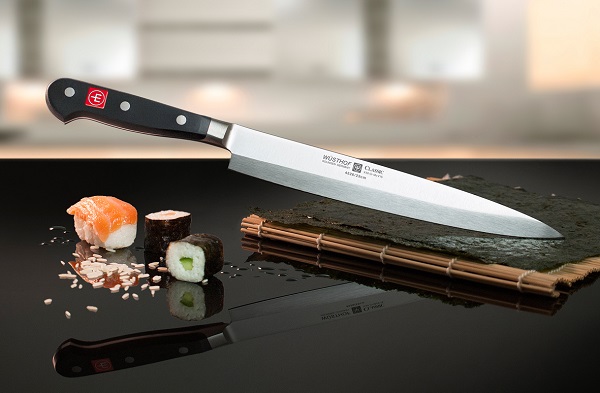The Continuous Rivalry
Often when shopping for knives, the first place to start is deciding if you require a Japanese or a German knife based on your cooking style. The Japanese are renowned for producing the sharpest of knives stemming from the Samurai swords. On the other hand, the Germans are no fools and Solingen in Germany is the knife Mecca of the Western world.The Difference in Design
German knives usually have a full-tang and a bolster. A full-tang blade means the blade starts from the tip of the knife and continues to the end of the handle, with the bolster being the thickest part of steel located right before the handle. The bolster provides extra strength to the handle and ensures the flimsy feeling you may get when chopping tougher vegetables is avoided. German steel knives usually have a rating of 56 to 58 on the Rockwell hardness scale for metals. The blade angles on German knives are usually between 15-20 degrees per side. Certain German brands like Wusthof, however, have a 14-degree angle per side (except for their Asian style Santoku, Nakiris and Chai Daos). Japanese knives more often than not have no bolster and the tangs vary between knife makers. The Japanese steel blades used in production is harder than German steel with a Rockwell rating between 60 to 62 on the scale for brands like Shun. Popular brands like Global Knives with their unique CROMOVA steel are 56-58 in Rockwell hardness. This means that although the Japanese knife is constructed with multiple tangs, each tang is designed from a stronger and harder steel when compared to German Knife blades. The angles on the Japanese knives vary around 9 to 15 degrees per side.It's important to note that hardness doesn't mean everything. A high Rockwell hardness over 58 will provide the sharpest edge retention but will also require greater care as they can chip and shatter if dropped or misused. Those with a lower Rockwell score are therefore less likely to chip and shatter, and can handle more abuse, but will require sharpening more regularly.
This visual guide below provides an easy summary: Credit: KnifeArt.com
Credit: KnifeArt.com
So, which one is better?
Honestly, it all depends on the task at hand. If you are performing delicate tasks like slicing a tomato or sashimi, Japanese knives glide effortlessly through the food with barely any effort needed. They are more likely to create paper thin slices when cutting than German Knives. This is because of the small degree on the Japanese blade that creates a finer and sharper edge. The advantage of these knife blades is that they are much easier to sharpen as they don’t have a bolster, yet the fine edge means they are more inclined to chip easily. On the other hand, the stronger and thicker blade on the German knife holds its edge far longer, which means less sharpening is required. Also, even though Japanese knives use a harder and sharper steel, most of the blades seem thinner and more delicate. This means if you need to tackle a whole pumpkin or watermelon, you are best off with a German blade. Pictured: Mac Tetsuya Chefs Knife
Pictured: Mac Tetsuya Chefs Knife
So what are our favourites?
Our two favourite German knife brands both made in Solingen, Germany are Wusthof and Gude di Messer. Wusthof is the number one best selling range of knives, while Gude di Messer, although lesser known, should certainly not be ignored. As for Japanese knife brands, we have three favourites that are all made in Japan. The most well-known knife brand and the best-selling range in Australia is undoubtedly Global Knives. They are the most commonly used in households across Australia, however if you ask a professional chef, they will regularly say they prefer either Mac Knives or Shun Knives.
So which chef uses what knives?
Gordon Ramsay can almost always be seen with a Wusthof knife in hand. You can catch him showing off his skills with his Wusthof Chef's knife in the video below: Tetsuya and Marco Pierre White both only use Mac Knives. Matt Moran is often seen with his Global Knives and Donna Hay with her Shun Knives. These five knife brands aren’t the only ones on the market. You cannot ignore other top quality ranges like Victorinox Knives (made in Switzerland) and Dexter Russell made in the USA. Shop all our knife brands here.
